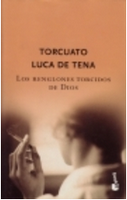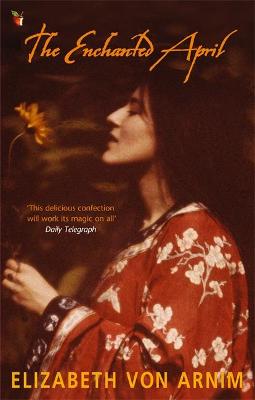You’ve written the book, found a publisher, paid for the launch - you never knew so much wine could be consumed, at your expense! - and now you want to sell, sell, sell. You sneak into bookshops (hoping you won’t be recognised) look around for your baby only to find it’s hidden on a table, covered from view by a completely different book sitting jauntily on top; or you’ll discover a single copy jammed on the shelf, out of alphabetical order, in amongst the hoi polloi where not even Hercule Poirot could unearth it. How can you make sure your book will be sitting proud in the window display? How do you earmark the best spot on the display table? How do you get it from goods-in to point-of-sale and out the door?
* Stand out from the crowd: attend your book launch wearing your birthday suit; they’ll drink more wine (to get over the shock) and buy more books. On the way to the launch, rescue a small child in some dramatic way while not putting your own life in actual danger but looking as if you were.
* Get on a popular radio show, give a great interview and the listeners will rush down to their local bookstores to get a copy.
* Give reading copies to the people who will actually be selling your book: the person behind the till is generally the one asked for a recommendation.
* Get it into a book club where it will be read, discussed and then passed on.
* Oh, and be nice to the people who will ultimately sell your book. Authors who forget their manners while book signing with their first Montblanc do so at their peril!
Preparation, though, is everything. Who are you writing this book for? Have you got readers in mind? Are you writing for a particular age group and do you know what interests them? Working in a bookshop is one excellent away of doing your research but if you can’t do that then visit bookshops regularly, check out what’s selling, keep an eye on the books being displayed, find out what books are being talked about.

One author, who did his research thoroughly was the British humorist, writer and satirist, Alan Coren. He was scathing about authors who whine about publishers not promoting their books when they themselves have made no effort whatsoever to make their work saleable. After elementary research he learned that the best-selling books were about cats, golf, and Hitler. Armed with this vital information he wrote
Golfing for Cats, a series of comic essays. His pieces included a send-up of
1984 that revealed the fundamental fallacy in Orwell's vision of the future that assumes the Big Brother State functions with perfect efficiency.
Coren wrote nearly twenty books, most with equally humorous titles including his most successful work,
The Collected Bulletins of Idi Amin. He also wrote
The Dog It Was That Died, Rhinestone as Big as the Ritz, All Except the Bastard, and
Tissues for Men.

On the other hand,
according to Horace Bent of The Bookseller magazine, Katie Price aka Jordan (who??) with her latest novel,
Sapphire, sold more copies in a week than the entire Booker Prize longlist - by five copies to one! That’s celebrity, manufactured beauty and glitter doing all the publicity for you. Being rich and famous and well connected is often all you need to write a "bestseller".
Oh, and last but not least: whoever said that you shouldn’t judge a book by its cover was quite right. But that doesn’t stop every last one of us looking at a book cover and deciding, on that alone, whether or not we would be interested. Put a girlie cover on and no self-respecting male will venture one page in. Slap a dash of pink across the front and boys will shy away. A bare body draped in loose clothing can irritate women, while boring, bland covers with out-dated graphics will turn everyone off.
There’s a lot more to consider when you thought that having written the book you could now sit back and relax. Well, you can if your name is Thomas Pynchon (known for his avoidance of personal publicity, we don’t even know what he looks like) or Sebastian Faulks or J.K. Rowling. Everyone else has to get out there, show your face, sign every copy possible, and talk yourself up!
 I like this book because it is really interesting and I couldn’t stop of read when I started. In the story you can’t know if the most important person of the book, Alice, is really crazy or she says the truth and she is a detective. She is absolutely intelligent, so the doctors ,who are trying to help her , can’t know if she really crazy. Alice think that she is in the asylum (manicomio) because she has to investige a crime, but when she discovered who was the criminal and she wanted to come back home, nobody believed her and she thought that somebody, maybe her husband, wants to leave her in the asylum (manicomio) to stole her all her money.
I like this book because it is really interesting and I couldn’t stop of read when I started. In the story you can’t know if the most important person of the book, Alice, is really crazy or she says the truth and she is a detective. She is absolutely intelligent, so the doctors ,who are trying to help her , can’t know if she really crazy. Alice think that she is in the asylum (manicomio) because she has to investige a crime, but when she discovered who was the criminal and she wanted to come back home, nobody believed her and she thought that somebody, maybe her husband, wants to leave her in the asylum (manicomio) to stole her all her money. 













